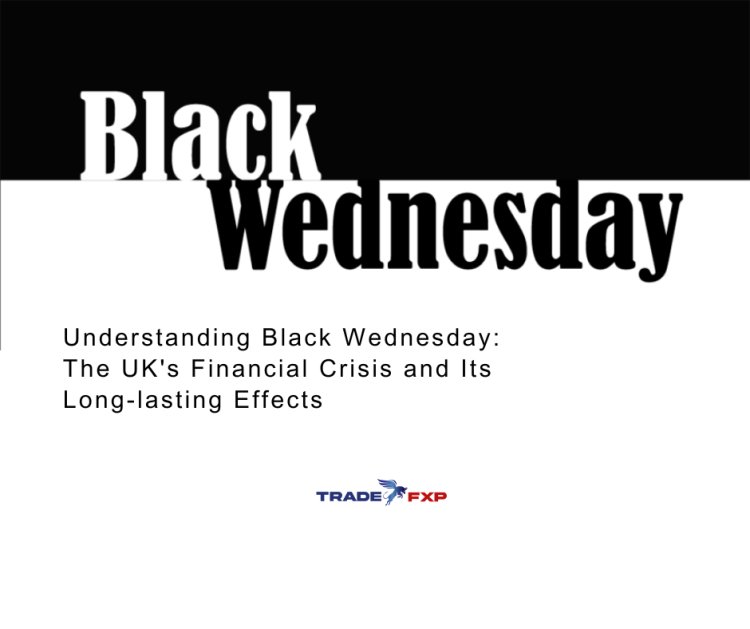Understanding Black Wednesday: The UK's Financial Crisis and Its Long-lasting Effects
Detailed examination of the Black Wednesday crisis in the UK, the decisions that led to it, and the lasting impact on the political and economic landscape.

Understanding Black Wednesday: The UK's Financial Crisis and Its Long-lasting Effects
The Journey Towards Black Wednesday: Margaret Thatcher and the ERM
On Black Wednesday, the UK government faced a major financial crisis that resulted in significant losses. This crisis was the direct consequence of the country's decision to join the European Exchange Rate Mechanism (ERM), a system that fixed the value of the pound against the German Deutsche Mark.
The decision to join the ERM was made by then-Prime Minister Margaret Thatcher against her better judgment. Thatcher, known for her conservative economic policies, reluctantly agreed to join the ERM due to mounting pressure from her own party and international institutions.
Joining the ERM had immediate consequences for the UK economy. The fixed exchange rate led to a high value of the pound, making it difficult for British businesses to sell their goods abroad. This resulted in a significant decline in exports and a loss of competitiveness for British companies in the global market.
Furthermore, the ERM's strict monetary policy aimed at controlling inflation caused a recession in the UK. Many industries were hit hard, leading to job losses numbering in the millions. The combination of a high exchange rate, inflation, and recession created a perfect storm for the UK economy.
When the crisis hit, Thatcher had already stepped down as Prime Minister, and John Major was now in charge. Major tried to defend the pound and stabilise the currency by raising interest rates. However, these measures proved ineffective in the face of the mounting speculation against the pound.
Speculators and currency traders, like the infamous George Soros, saw an opportunity to profit from the situation and bet against the pound. They made massive fortunes by selling the pound and exacerbating the downward pressure on the currency.
Desperate to defend the pound, the Bank of England used its foreign currency reserves to buy pounds. However, the selling pressure was simply too overwhelming, and the government was forced to make the difficult decision to suspend the UK's membership in the ERM.
This decision to leave the ERM was seen as a political catastrophe and resulted in a severe loss of government credibility. The failure to maintain the fixed exchange rate system was viewed as a humiliation for the UK and its leadership.
The events of Black Wednesday marked a turning point in British politics and had long-lasting effects on the government's reputation and the broader debate about the European Union. It exposed the vulnerabilities of fixed exchange rate systems and raised questions about the effectiveness of supranational monetary arrangements.
Next, we will delve into the crisis and its aftermath under John Major's leadership, shedding light on the financial turmoil that ensued.
The Crisis and Its Aftermath: John Major's Measures and the Financial Turmoil
In the aftermath of Black Wednesday, John Major, who had succeeded Margaret Thatcher as Prime Minister, had to navigate the severe financial turmoil that engulfed the UK. The country was reeling from the impact of leaving the European Exchange Rate Mechanism (ERM) and the loss of government credibility.
Major faced the enormous task of stabilizing the economy and restoring confidence in the UK's financial system. One of the major measures he implemented was to raise interest rates even higher in an attempt to defend the pound. However, these measures had limited success in mitigating the damage caused by Black Wednesday.
The combination of a high exchange rate, inflation, and recession continued to plague the UK economy. Businesses struggled, and unemployment rates remained high, resulting in significant hardships for the population. The crisis had a profound impact on the lives of many, leading to a prolonged period of financial and economic uncertainty.
As the government grappled with the aftermath of Black Wednesday, criticism of their handling of the situation grew. The loss of public money was a sore point, and many questioned the government's ability to effectively manage the country's finances. The events of Black Wednesday had laid bare the vulnerabilities within the UK's economic framework.
Germany's role in the crisis also came under scrutiny. Critics argued that Germany, as the dominant economy in the European Union, had a significant influence over the value of the Deutsche Mark and, by extension, the pound. They claimed that Germany's economic policies had contributed to the imbalance and subsequent crisis faced by the UK.
Furthermore, the long-lasting effects of Black Wednesday on British politics cannot be underestimated. The event marked a turning point in the debate surrounding the European Union. It fueled discussions about the drawbacks of monetary union for individual member states and raised questions about the UK's relationship with the EU.
The crisis highlighted the risks and uncertainties associated with giving up control over monetary policy in favor of supranational monetary arrangements. It fueled Euroscepticism and contributed to a growing sentiment of skepticism towards European integration in the UK.
Ultimately, Black Wednesday served as a wake-up call for the UK and its leaders. It exposed weaknesses in economic decision-making and forced a reevaluation of the country's financial strategy. The consequences of the crisis would continue to reverberate for years to come, shaping the UK's political landscape and its approach to European integration.
Stay tuned for the final chapter, which will dive deeper into the long-lasting political and economic effects of Black Wednesday.
The Long-Lasting Political and Economic Effects of Black Wednesday
Black Wednesday, with its financial crisis and subsequent events, had far-reaching consequences that extended beyond the immediate aftermath. The political and economic effects of the crisis left a lasting impact on the UK and its relationship with both the European Union (EU) and its own domestic affairs.
One of the critical political ramifications of Black Wednesday was the loss of government credibility. The failure to maintain the fixed exchange rate system and the subsequent economic turmoil eroded public confidence in the ruling party and its leadership. The government was seen as unable to steer the country through a major financial crisis, leading to questions about its competence and effectiveness.
Moreover, the events of Black Wednesday had a profound influence on the broader debate about the UK's place within the EU. Euroscepticism, already present in the country, gained momentum as people questioned the benefits and risks of closer integration. The crisis sparked a significant shift in public perception and fueled anti-EU sentiments.
The aftermath of Black Wednesday also prompted a reevaluation of the UK's economic policies. The crisis exposed flaws in the approach of fixed exchange rates and highlighted the importance of maintaining flexibility in exchange rates to mitigate economic shocks. It led to a reassessment of monetary policy and the role of central banks in managing financial stability.
Furthermore, the crisis had far-reaching economic effects. The recession that followed Black Wednesday resulted in a prolonged period of economic stagnation and uncertainty. The UK suffered from decreased investment, reduced consumer spending, and a weakened business environment. Many businesses and people experienced difficulties as a result of the impact, which spread to various sectors.
Black Wednesday also played a significant role in shaping the UK's stance on European integration. The event served as a rallying point for critics of further EU integration, who argued that it demonstrated the dangers of surrendering control over monetary policy. It fueled debates about the level of sovereignty that should be ceded to supranational institutions, such as the EU.
Furthermore, the crisis highlighted the potential risks of financial speculation and the influence of currency traders on destabilizing economies. The actions of speculators like George Soros during Black Wednesday attracted scrutiny and led to discussions about the need for regulation and safeguards to prevent such disruptions in the future.
In conclusion, Black Wednesday left a lasting mark on both the political and economic landscape of the UK. The loss of government credibility, the rise of Euro-skepticism, and the reevaluation of economic policies were among the significant political consequences. Economically, the recession and the associated hardships had a long-lasting impact on businesses and the lives of individuals. The crisis also sparked discussions and debates about the UK's relationship with Europe and the role of monetary policy. Ultimately, the events of Black Wednesday reshaped the UK's approach to finance, economics, and EU integration.
Thank you for following this series on Understanding Black Wednesday: The UK's Financial Crisis and Its Long-lasting Effects. Feel free to share your thoughts and insights in the comments section below!
Have a great journey, and may you catch some big waves on your way to prosperity!
To see this for real, click here.
https://www.myfxbook.com/members/SankarGanesan/tradefxp-trend-antitrend-day-trading/10404725
To read why you should be with us, click here
To open an account, click here.
To see our regulation certificate: click here.
To see our news with the IFMRRC: click here.
For claims, click here.
For the main site: click here.
For blogs and articles: click here.



 admin
admin 










